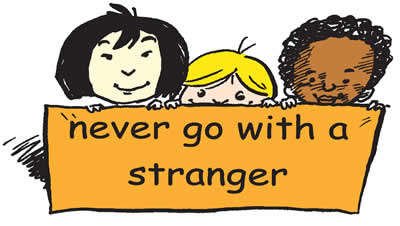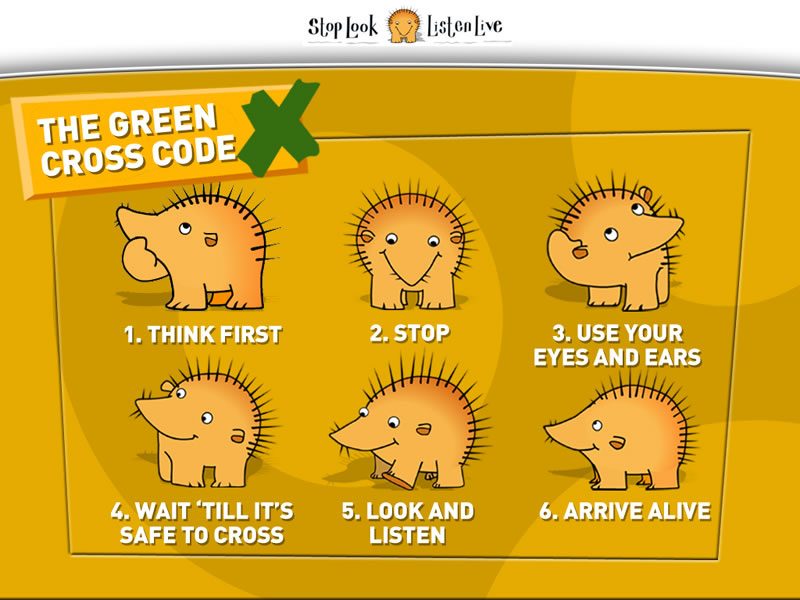Childline – 0800 1111
Samaritans – 08457 90 90 90
BullyingUK - 0808 800 2222
The information below will help you learn about staying safe in different situations. A huge thank you to Year 6 for helping put this information together for the whole school!
Childline is here to help anyone under 19 in the UK with any issue they’re going through.
You can talk about anything. Whether it’s something big or small, trained counsellors are there to support you.
Counsellors are trained staff and volunteers. All sorts of people become Childline counsellors. They’re all different ages and come from lots of different backgrounds, but what they all have in common is that they want to help young people.
A Childline counsellor:
Follow the link to explore the childline website: www.childline.org.uk.
If someone makes you feel uncomfortable or upset online, talk to an adult you can trust, such as a relative or a teacher. If you would prefer to talk to someone in confidence you can contact Childline (0800 1111)
If someone has acted inappropriately towards you online, or to someone you know, you can report it directly to the Child Exploitation and Online Protection Centre (CEOP). It could be an uncomfortable or threatening chat, or you may have been asked to do something that makes you feel uncomfortable.
-----------------------------------------------------------------------------------------------

-----------------------------------------------------------------------------------------------
Your underwear covers up your private parts and no one should ask to see or touch them. Sometimes a doctor, nurse or family member might have to, but they should always explain why, and ask you if it's okay first. Your body belongs to you.
Childline – 0800 1111
Childline is a free, 24-hour telephone helpline for children and young people anywhere in the UK. Trained counsellors offer comfort, support, advice and protection. Calls to Childline are confidential, and are free even from mobiles. Calls don’t show up on phone bills. If you’re deaf, hard of hearing or have difficulties with speech, you can use their textphone service on 0800 400 222 (not available at night). You can also look at their website: www.childline.org.uk.
More information about the Underwear Rule, can be found at nspcc.org.uk/underwearrule.
-----------------------------------------------------------------------------------------------
Child on Child Abuse
What is child on child abuse or bullying?
A child is someone who might be your friend, a child at school with you, or another child you may know.
Abuse is something which usually physically or emotionally hurts another person by using
behaviour that is meant to scare, hurt or upset that person.
Sometimes, it can be hard to know when abuse is happening, because not all abuse will hurt, scare or upset you, and you might not know it is happening. It’s really important you know when you are being abused so we can make sure it stops.
You should always tell a trusted adult if you are worried about anything.
They can help you to make sure it stops!
Download our school Child on Child Abuse guide - created by Year 6! It will give you extra advice so that you know how to keep yourself safe.
Child on Child Abuse guide for children.pdf
Remember, you can also call Childline to talk about any worry you might have.
-----------------------------------------------------------------------------------------------
Bullying affects lots of people and can happen anywhere: at school, travelling to and from school, in sporting teams, in friendship or family groups, or in the workplace.
There is no legal definition of bullying, but it is usually defined as repeated behaviour which is intended to hurt someone either emotionally or physically. It is sometimes aimed at people because of their race, religion, gender or any other aspect such as appearance or disability.
Bullying can take many forms including:

If you are at all worried or feel you are being bullied you should talk to a parent, carer, teacher, friend or trusted adult. In school all staff recognise the seriousness of any instances of bullying and address them as a matter of priority.
There are also many useful websites and helplines providing support and advice, some of which are listed below
The National Bullying Helpline - 0300 323 016
Childline – 0800 1111
Samaritans – 08457 90 90 90
BullyingUK - 0808 800 2222
-----------------------------------------------------------------------------------------------

Raising awareness of fire safety is really important as it could literally save someone's life. It is important you understand what to do in an emergency.
“Stop, drop, and roll” is used when clothing catches fire.
1. Stop where you are.
2. Drop to the ground and cover your eyes and mouth with your hands.
3. Roll over and over and back and forth until the flames are out.
4. Get help from a grown-up who will cool the burn and get medical help.
-----------------------------------------------------------------------------------------------

Hussey Road, Cannock, Staffordshire, WS11 9TP
01543278595
office@jerome-primary.org